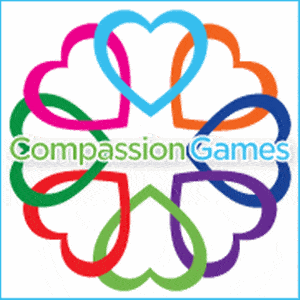What kind of culture are we growing? Culture refers to everything that makes up our way of life. Our culture comes from the process of cultivation. We have learned how to grow our culture as in agriculture and horticulture. This suggests that our culture is a function of how we think and act, individually and collectively, and that we can change our culture by acting imaginatively and creatively.
Our culture is revealed in the ways we work and play. Play is primary to how we create culture. Animals play. Games are structured play and can be fun. Games are a universal part of the human experience and are present in all cultures. Games are not necessarily frivolous; there are serious games and social impact games. Playing games can help us adapt and evolve into what we are capable of achieving. Cultural theorist John Huizinga says: “Let my playing be my learning, and my learning be my playing.”
Competition doesn’t have to mean winners and losers. Competition comes from the Latin word competere which means to strive together or to seek together for some common interest. The essence of competition implies working or striving together in cooperation towards a common goal. We can compete with each other and not compete against each other. Competition in society can strengthen the whole instead of dividing it, because only as a whole can we “strive together”. What if our goal was to challenge each other to alleviate the suffering of our fellow creatures?
 This is what happened to us. In 2012 the Mayor of Louisville Kentucky, the Honorable Greg Fischer and the Director of the Partnership for a Compassionate Louisville, Tom Williams challenged the City of Seattle saying that “Louisville was the most compassionate city in the world and would be so until proven otherwise”. We at Compassionate Seattle said “Game On!” and started the Compassion Games: Survival of the Kindest to be played from 9/11 – 9/21. Last year Louisville and Seattle played to a draw. This year New York City, Los Angeles, Nashville, Milwaukee, Phoenix, Houston, Cincinnati, Louisville, and Seattle are at it again!
This is what happened to us. In 2012 the Mayor of Louisville Kentucky, the Honorable Greg Fischer and the Director of the Partnership for a Compassionate Louisville, Tom Williams challenged the City of Seattle saying that “Louisville was the most compassionate city in the world and would be so until proven otherwise”. We at Compassionate Seattle said “Game On!” and started the Compassion Games: Survival of the Kindest to be played from 9/11 – 9/21. Last year Louisville and Seattle played to a draw. This year New York City, Los Angeles, Nashville, Milwaukee, Phoenix, Houston, Cincinnati, Louisville, and Seattle are at it again!
The games measure the number of volunteers, service hours, dollars raised, and people served. As part of the service projects we are organizing a number of culture-change projects that are “coopetitions” to bring together groups that don’t usually work together to strive as a team to meet a common goal. For example, middle schools in the south end and middle schools in the north end of Seattle are teaming up to challenge other North/South teams in student-led initiatives to change the culture of the schools through positive actions. With support from the Interfaith Amigos local Muslims and Jews are partnering to challenge local Catholics and the Protestants to see who can contribute the most volunteers and number of hours of service to the common Team Seattle!
We suggest that reframing how we think about games and competition can open new possibilities for evolving our culture. The Compassion Games: Survival of the Kindest is an example of a cultural invention that demonstrates what is possible when we use coopetition to cooperate to compete with each other and “competitive altruism” to establish beneficial relationships that promote compassionate action. Shall we play?www.compassiongames.org
Jon Ramer
1st First-Follower, Compassion Games International
